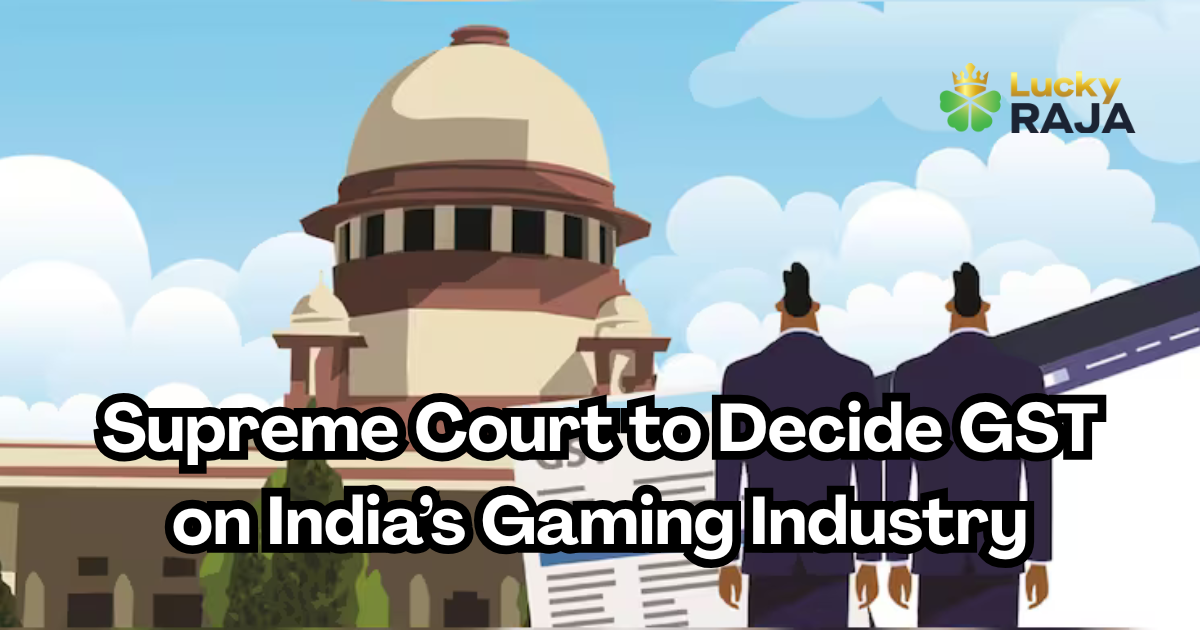Supreme Court to Decide GST on India’s Gaming Industry. India’s rapidly growing online gaming industry is at a decisive legal crossroads as the Supreme Court is set to rule on the Goods and Services Tax (GST) applicable to these platforms. With the sector valued at over ₹20,000 crore and growing, this ruling is expected to have long-lasting implications for companies, users, and the government.
What’s the Issue?
At the core of the legal debate is the classification of online games—should they be treated as games of skill, which are currently taxed at 18%, or games of chance (gambling), which are taxed at 28% on the entire face value?
Online gaming companies argue that many of their offerings, such as fantasy sports, poker, and rummy, require analytical thinking and strategic play, and hence should fall under the lower GST slab. However, the GST Council and several state authorities argue for a blanket 28% tax, regardless of skill or chance.
Why This Verdict Matters
- Favorable Outcome: Clarity in taxation, investor confidence, and growth in user base
- Unfavorable Outcome: Heavy tax burdens, reduced participation, and possible shutdown of smaller startups
- Legal Precedent: Could influence classification in other sectors like esports, fantasy leagues, and trading games
Online Gaming Industry in India – Year-wise Growth & GST Implications
| Year |
Market Size (₹ Cr) |
Active Users (in Millions) |
GST Rate on Skill-Based Games |
GST Rate Proposed for All Games |
Key Highlights |
| 2020 |
6,500 |
360 |
18% |
N/A |
Pandemic-driven growth surge |
| 2021 |
9,000 |
420 |
18% |
Under Review |
Rise of fantasy sports & poker |
| 2022 |
13,600 |
510 |
18% |
Proposal for 28% floated |
Industry lobbies against uniform GST |
| 2023 |
16,700 |
580 |
18% |
GST Council pushes for 28% |
Legal challenges begin |
| 2024 |
20,000+ (est.) |
600+ |
18% (disputed) |
28% on face value (pending verdict) |
Supreme Court reserves judgment |
| 2025 |
TBD (Post-Verdict) |
Projected 650+ |
TBD |
TBD |
Awaiting Supreme Court final ruling |
Industry Viewpoint
Companies like Dream11, Games24x7, MPL, and PokerBaazi are currently locked in legal battles over retrospective GST demands amounting to thousands of crores. According to All India Gaming Federation (AIGF):
“A uniform GST rate applied without considering skill-based differentiation will stifle innovation and damage investor trust in India’s digital future.”
These platforms also stress that over 95% of users play with small ticket sizes, and excessive taxation could lead to a shift toward unregulated or offshore gaming portals.
Legal and Economic Implications
Beyond gaming, this ruling could influence:
- Data governance and regulatory clarity in India's digital commerce
- Foreign direct investment decisions in the Indian tech and gaming ecosystem
- Startup tax policy, impacting how new-age industries are taxed or incentivized
What’s Next?
The Supreme Court bench, led by Chief Justice D.Y. Chandrachud, is expected to pronounce the judgment by mid-to-late 2025. Legal experts suggest that this will be a benchmark decision for digital India, especially in the post-COVID digital economy where online entertainment has surged.
Until the verdict, companies, investors, and gamers remain in a cautious holding pattern, awaiting clarity on whether India’s gaming revolution will be nurtured or taxed into stagnation.
As of now, skill-based online games are taxed at 18% GST, while games of chance are subject to 28% GST on the entire face value. However, this classification is under legal review by the Supreme Court.
The Supreme Court is reviewing whether online games should be taxed uniformly at 28% or if a distinction should be made between games of skill and chance. The outcome will set a legal precedent for the entire industry.
A ruling in favor of a 28% flat GST could increase operational costs, reduce user participation, and lead to massive tax liabilities for gaming platforms. A favorable ruling may boost investor confidence and industry growth.








__1751890368-0.png)
__1750321627-0.png)
__1751029764-0.png)






